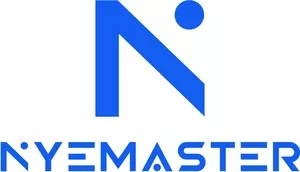In two recent cases, both the Iowa Supreme Court and the Iowa Court of Appeals weighed in on the issue of when an employee has knowledge of an injury.
In Tweeten v. Tweeten, 999 N.W.2d 270 (Iowa 2023), plaintiff Corey Tweeten suffered an acute right arm injury in July 2017 while vacuuming out a grain bin, which resulted in a diagnosis of tennis elbow. The following year, in April 2018, while still receiving treatment for his tennis elbow, Tweeten began reporting shoulder pain, which was later diagnosed as a deltoid tear and surgically repaired. Tweeten's experts opined the deltoid tear was caused by overcompensating for his tennis elbow injury, meaning that it was also related to the July 2017 work injury. Tweeten filed his petition on January 21, 2020, seeking benefits for a right upper extremity injury alleging an injury date of February 1, 2018.
The Iowa Supreme Court was tasked with determining whether the claimant had filed his petition within the two-year window from the date of injury that is allowed by the statute, a decision that turned on when the claimant knew he had a work-related injury.
Iowa Code section 85.26(1) requires that a proceeding for workers' compensation benefits must be "commenced within two years from the date of the injury for which benefits are claimed." Prior to 2017, the phrase "date of the occurrence of the injury" was not statutorily defined. The Iowa Supreme Court had therefore adopted two methods of determining the injury date: a manifestation test for cumulative injuries and a discovery rule.
- The manifestation test for cumulative injuries provided that the injury date was the date "when the claimant, as a reasonable person, would be plainly aware (1) that he or she suffers from a condition or injury, and (2) that this condition or injury was caused by the claimant's employment." Tweeten at p. 279 (citations omitted).
- The discovery rule tolled the two-year period "until the worker knows or should know that the injury is compensable for purposes of worker's compensation benefits", in other words, "until the employee also knows that the physical condition is serious enough to have a permanent adverse impact on the claimant's employment or employability." (citations omitted).
However, in 2017, the legislature added a significant sentence to section 85.26, defining the "date of the occurrence of the injury" as "the date that the employee knew or should have known that the injury was work-related."
In Tweeten, the Supreme Court determined the 2017 amendment effectively removed the requirement that the claimant know or understand the compensability of their injury. Now "the two-year statutory period begins to run when the employee knows or should know that an injury is work-related, without regard to whether the injury is also serious enough to be compensable." Tweeten at p. 282. As applied to the Tweeten claim, the Supreme Court found that Tweeten "knew he had a right-arm injury that was work-related more than two years before he sought benefits, and his claim is therefore barred as untimely." Tweeten at p. 282. Notably, however, the Tweeten court expressly declined to address how the 2017 amendment might apply to a cumulative injury claim, as opposed to one with a specific acute injury.
In Tyler v. Tyson Fresh Meats, Inc., 4 N.W.3d 721 (Iowa Ct. App. 2024), the Iowa Court of Appeals extended the Tweeten ruling to also apply to the notice period provided in Iowa Code section 85.23. Section 85.23 provides an affirmative defense for employers in instances where the employer is not given notice of an injury within 90 days of the date of the occurrence of the injury. The 2017 statutory amendments added the same definition of the "date of the occurrence of the injury" to section 85.23 as was added to section 85.26. Therefore, the Tyler court applied the Tweeten holding and found that "the 90-day notice period set by section 85.23 starts on the date the claimant knew or should have known the injury was work-related, without regard to claimant's knowledge of the nature, seriousness, or probable compensable character of the injury." Id.
These rulings represent the Court's adoption and endorsement of the 2017 legislative changes, signaling more of a bright-line analysis in cases involving issues of notice and statute of limitations defenses.
The content of this article is intended to provide a general guide to the subject matter. Specialist advice should be sought about your specific circumstances.


